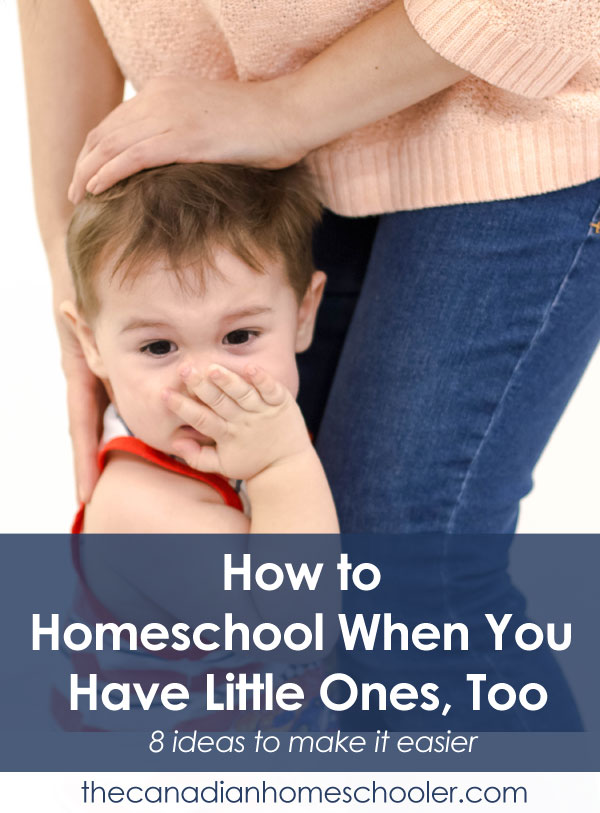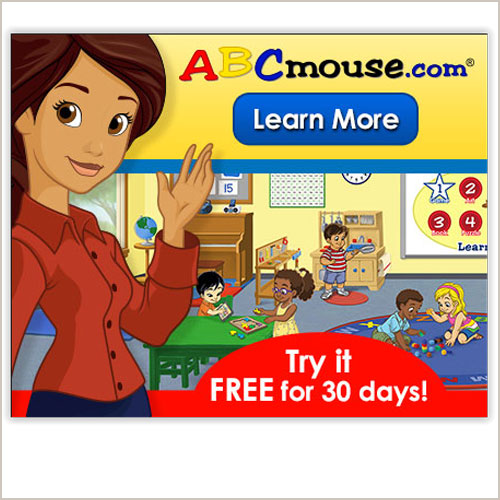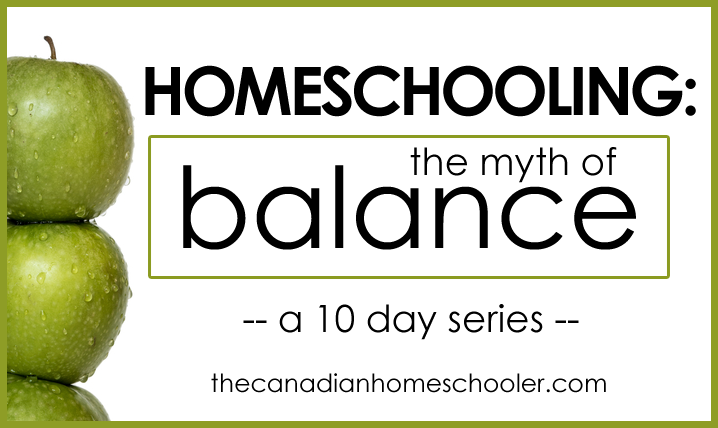Trying to homeschool with little ones around can be a challenge. Preschoolers and toddlers simply require a lot more time, attention, and support than older children do and are quite the demand on your focus. It can be hard to figure out how, exactly, to successfully meet their needs while still teaching their siblings. Let’s talk about how you can do homeschooling when you have little kids too.

This post contains affiliate links.
Here are some ways to handle the overwhelm of younger children in your homeschooling adventures.
1. Teach the older children independence in learning.
Although older children will still need help in their homeschool education, giving them the ability to be more independent means that you aren’t tied to their side for however long it takes them to finish the work they are supposed to be doing in a day. Give your older kids freedom to succeed at independence by offering the daily checklists of what they need to accomplish. Let them work alone on subjects they can do without your guided help when you need to focus on their younger siblings. Use online resources that they can complete without you. This doesn’t mean you aren’t available or able to help – but you are able to meet the needs of more kids at once.
2. Ask older children to help.
If you have multiple older children, ask an older one to be “in charge” of their younger siblings for a short period of time while you do some one-on-one work with another child. That caregiver child can do anything from reading to the little one, to LEGO creating, to just simply playing. As long as they know they are to make sure their little sibling is safe, and not getting into trouble, it can be a big relief.
3. Use technology.
As our world becomes more and more digital, so many amazing resources for all ages are coming available. There are some incredible ones for our youngest children that are fun, interactive, and even (dare I say?) educational? Besides that, it’s kind of crazy how these little ones are able to figure out technology so quickly! Pull out a tablet and let them use an app for a short time. Turn on the computer and let them play or watch clips of their favourite television shows. Give them a toy computer that has some games on it.
Here are some favourites for little ones in our house:
- Starfall (app / website): lots of games and activities, but especially great to help with early and developing phonics
- Reading Eggs / Mathseeds (website): There is a cost for these sites, but they are terrific at helping little ones start phonics and early math skills.
- Jumpstart (website): an online game where you get to walk a character around a world, raise a pet, do games and explore. It’s probably best for older preschoolers.
- PBSkids.org (website) : games from popular tv shows like Curious George, Sid the Science Kid, Super Why, etc.
- KnowledgeKids (app / website): Although it does have great games, my littles love to use this site to watch their favourite shows like Paw Patrol, Kate & Mim-Mim, Wild Kratts, etc. They can pick from a tonne of episodes and watch on demand.
- Endless ABC / Numbers / Wordplay, etc (app) : Even the littlest ones love these games. Basically, they learn about spelling, phonics, and early math by dragging the letters and numbers around the screen to the places they belong. The letters make funny sounds when you pick them up (their phonetic sounds!).
Never underestimate the power of a TV show, either. If your little one will focus for the 20 minutes of a kid show, it means that you know where they are and what they are doing for a small chunk of time that you can use to work one-on-one with an older child. This can be a lifesaver when that little one is being particularly challenging or needy when you are trying to get through school.
4. Fill up their tanks first.
Before you start the school day with your older kids (or when they are working independently), spend some quality time with your smallest family members. Sit on the couch with a book and snuggle. Make muffins together. Do something that will help them feel happy and content and special, instead of needing to vie for your attention. Intentionally filling their little love tanks before moving onto the next child can make a huge improvement in their ability to keep busy without you while you work with other kids.
5. Give them something special to do.
Having special activities that they are only allowed to do while it’s school time usually excites the little ones. Here are some ideas:
- a whiteboard. For me, this is a great, no-brainer kind of activity because little ones stay close by, practice fine motor skills, learn to draw shapes, letters, and colours, and discover what happens when they mix together. It allows for creativity. As long as the markers stay off the carpet and clothes, this is a quick and mess-free activity.
- busy bags. That’s exactly what they are. Zippered bag with activities inside to keep your little one busy while working on a skill. Usually each bag focuses on something specific – like fine motor skills, colour recognition, numbers or letters, etc. The child opens the bag, does the activity, puts it back in the bag, and then moves onto the next one. There are zillions of ideas for busy bags.
- reading cozy corner. Set up a little kid reading space with little-sized chairs, or a pile of pillows and blankets, etc and add a small bin of books. Give them opportunities to go sit in their special space and read. Rotating those books frequently means it will hold your child’s attention more often.
- special toy bin. Find a toy or set of toys that are only available for times when you are doing school with your older kids. Again, these can be rotated to keep their attention and interest.
- housework. Now, I’m not suggesting that your toddler or preschooler are likely going to be able to do much that will make a big dent in your housekeeping list, but they do love feeling special and helpful by doing housekeeping tasks. Pass them a duster or a small broom. Give them a cloth and a spray bottle of water to wash the windows or cupboard doors. Get them to match socks or shoes. Have them unload the cutlery from the dishwasher into the right spaces in the drawer (I usually put my cutlery drawer on the floor so they can see the inside without having to climb something.)
- art. Crayons and paper can be a toddler’s heaven. You can print out colouring pages with their favourite animal and character, and keep them close at hand for a short attention grabber for your little ones. Put some poster paint into a zippered bag, tape it to the table, and allow them to finger paint without the mess. Get some of those Crayola Magic Markers that only colour on the paper they are made for (no mess!) Make playdough for them to play with. Give them stickers.
- trays. Set up a special station where you can put together trays just for your little one. They can either be educational trays (often called Tot Trays) or you can try a Montessori tray that focuses more on learning a practical skill.
- tinker box. Fill up a box with miscellany (straws, popsicles sticks, tape, paper scraps, etc etc.) and let them be self-led engineers.
6. Let them do “school.”
Although they don’t need to do any sense of formal learning until they are older, young ones always seem to be the most eager to participate in school. Buying cheap workbooks for them to scribble in (or attempt to work on without pressure) can give them the sense of being part of the school fun that their older siblings are doing. Educational activities they can do at the table, like putting the right number of noodles into marked circles on a page, can be a fun way to learn. Print off extra copies of things you print for your older children so they can scribble away at it too. Do a modified preschool program for them so they have “real” work to do at the same time.
7. Break up school into chunks.
If you are finding you need more time for your little ones because they keep interrupting school time, break the day up into smaller chunks. Instead of tackling everything on the list in one big go, do one thing at a time with your school-aged kids then take a short break to focus on the younger ones. Then do the next thing and repeat.
8. Put them somewhere safe.
One of the biggest frustrations with toddlers and preschoolers is their uncanny ability to get into anything in no time flat. You just turn your head for a minute and there is a huge mess. (In our home, some of the memorable mayhem moments of this nature have included an entire jumbo bag of flour all over my kitchen floor like a layer of snow and the time they found a can of green paint and shook the lid off…. Let’s not talk about it.) Finding somewhere for them to be that will be a safe environment while you need to focus on something else is important. For the really little ones, that might mean a playpen. Do your school work in a single room of the house and add baby gates or close the door or just have your younger child beside you at the table or on the couch to keep them close.
As with everything in our series, the keyword for homeschooling with younger children around is intention. Having a plan and preparation in place makes the experience of having a wide range of children in your homeschool home much less of a stress and more of a joy – making homeschooling when you have little kids too a success.
Want more tips on how to better handle the different parts of your busy life? Check out the other posts in this 10 day series: Homeschooling & The Myth of Balance.
- How to Keep a Toddler Busy While Homeschooling - March 21, 2024
- 25+ Things Your Kids Learn From Video Games - March 20, 2024
- 10 Words For New Homeschoolers - March 20, 2024




Great tips. I’ve been working with my 9yo on being more independent because now I’ll have a kindergartner. I’ve got to give her the time she needs before I can help my older child with school!
Yep we do all those things. I think for our very busy toddlers, changing things up is important too. The playpen worked for 6 weeks, than she screamed as I got near the thing! Separate rooms worked until they figured out the bigger kids were in the rooms and banged on the door until someone got annoyed and couldn’t work. Having another adult or babysitter on hand during lessons is great so I often save big learning activities for after dinner or weekends when Daddy is available to keep my little ones occupied. Or ask Grandma to help when she’s able. Its really a juggling act of balancing everyone’s needs.